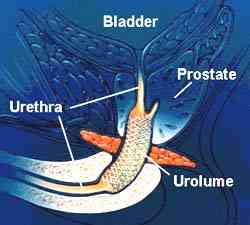Prostatic Stent
Minimal invasive management for the relief of LUTS (lower urinary tract symptoms) or Urinary Retention
Why is it done?
- This procedure is performed when the prostate gland is causing LUTS and you want an alternative to invasive procedures
- Symptoms include:
- a weak stream,
- nocturia,
- frequent urination,
- inability to urinate,
- Urinary Retention
- This is alternative to an invasive procedure where long periods of anesthetic are contraindicated.
- Usually for chronically sick patients who cannot undergo surgery yet are active enough not to want a permanent catheter.
- Usually, a trial of alpha-blockers would be attempted and Step-up Therapy with 5 Alpha Reductase Inhibitors have been unsuccessful
- Any prostate size
How is it done?
- Patients will receive sedation with local anesthetic gel placed in the urethra.
- A cystoscopy is performed by placing a camera in the urethra with the help of a lubricant jelly and an irrigate fluid.
- The measurements of the prostatic urethra are taken (length)
- Appropriate length coil is chosen.
- The device is placed through the cystoscopy sheath, to sit snug in the prostate urethra stretching from the bladder neck to the apex of the prostate
- Prophylactic antibiotics will be given to prevent any infections.
Complications
- Retrograde Ejaculation
- Stress incontinence especially in the elderly and diabetic patients
- Urgency and urge incontinence especially until detrusor hyperactivity dissipate
- Urge symptoms may persist due to detrusor fibrosis caused by long term bladder outlet obstruction
- May experience a slower stream initially due to swelling
- Possible infection due to cystoscopy (<2%)
- Migration of the device into the bladder, requiring a procedure to retrieve this.
- Long term yields the risk for encrustation and recurrent infections
- NB! Each person is unique and for this reason, symptoms vary!
Copyright 2019 Dr Jo Schoeman


Leave a Reply
Want to join the discussion?Feel free to contribute!